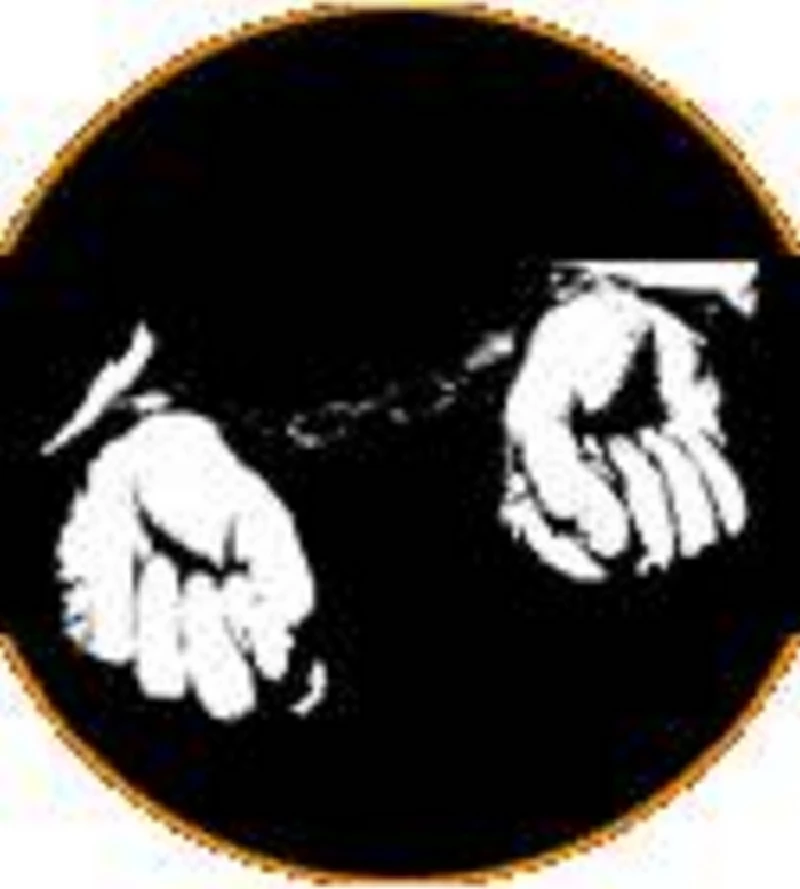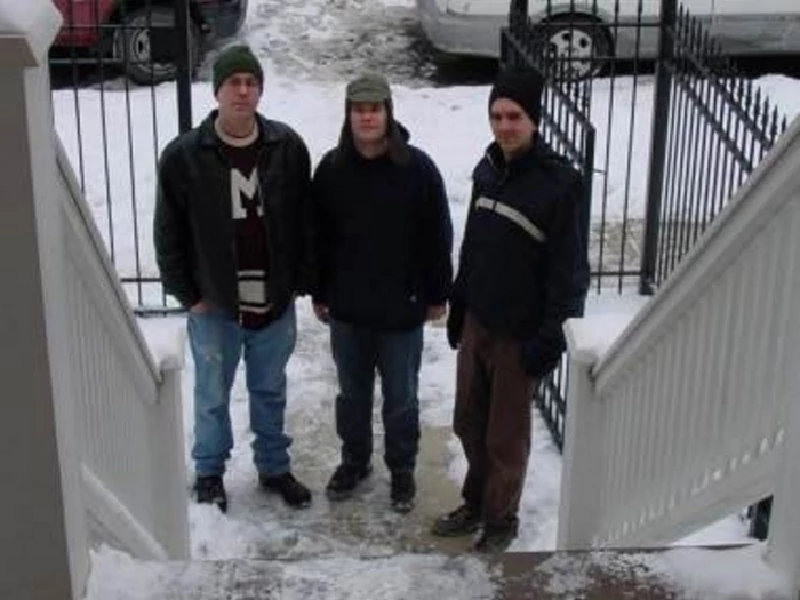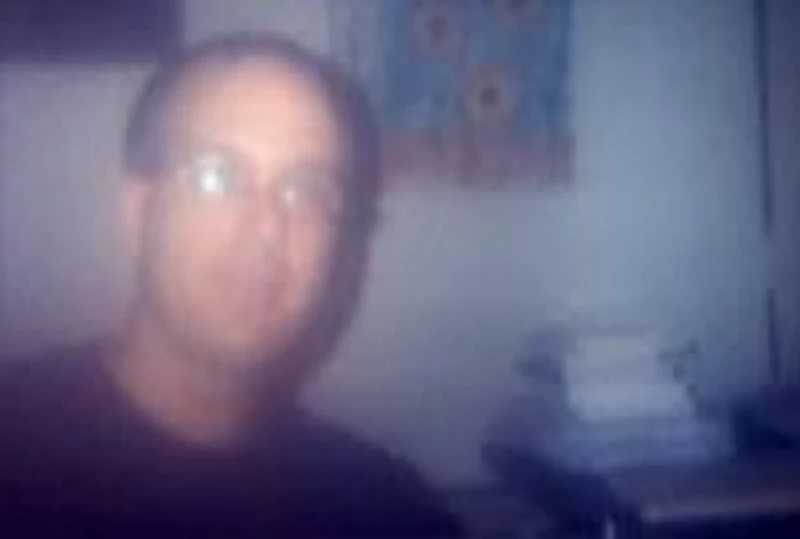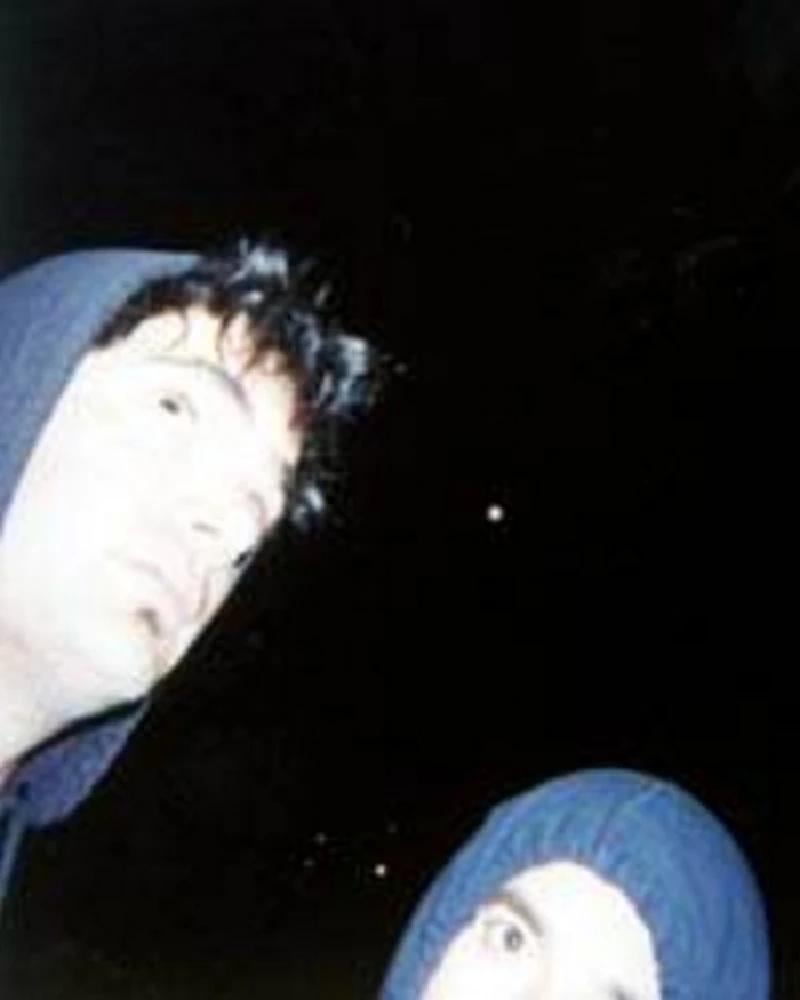Miscellaneous - Interview with Mike Griffin and Brett Ackerman
by John Clarkson
published: 18 / 4 / 2003

intro
Formed out of two other New York labels, Captive Ring is a promising new punk label and cooperative that hopes to put out several new releases this year. John Clarkson speaks to co-owners, Mike Griffin and Brett Ackerman, about their plans for it
The New York label Captive Ring was formed three years ago out of the ashes of two other labels, Captive Records and Mason Ring Records. Captive Records was run by Brett Ackerman, and put out in 1998 just one five track single EP, ‘Flake Out King’ by Chupa Cabra, a post-punk trio in which Ackerman was then singing and playing guitar. Mason Ring Records was larger, and, owned by Michael Hoffman, had released since the early 90’s over a dozen singles and albums. The last of these, which again came out, in 1998 was ‘I Have Some Language’, the debut album of hardcore trio the Wobblies, the band in which Hoffman plays drums and which also features Mike Griffin on guitar and vocals and Russ Aldertone on bass. By the end of 1999, Chupa Cabra had broken up. The Wobblies were also on a temporary break as Aldertone and his wife had recently had a baby. Hoffman and Griffin began, while the Wobblies were on sabbatical, to play together with Ackerman in a new “psychedelic punk” project, the Wick Effect. Highly experimental in tone, the Wick Effect features Hoffman again on drums, and has no bassist, but Griffin and Ackerman on joint vocals and guitars. Hoffman, Griffin and Ackerman chose to take the next logical step and to pool their resources and their talents together, and to create a new label, Captive Ring, out of the two old ones. They decided to run Captive Ring as a co-operative, and also to involve Russ Aldertone and their friend, Michael Strassman, in its management. Captive Ring Records’ debut record, the Wobblies’ second album ‘Padron’, came out at the beginning of last year. It was followed in October by the release of a Wick Effect album, ‘Quit’. 2003 is going to be a busy year for Captive Ring. Ackerman’s new “stoner rock” project, Black Spring, a duo which he has formed with former Chupa Cabra drummer, Phil Hampton, has an as-yet-untitled album out over the next few months. Griffin will also be releasing the debut EP, ‘Share a Little Medication’, by his latest side project, Gallus Mag, another duo which also features producer James Kavoussi on guitar and drums. The Wobblies will be releasing a third album at the end of the year. Pennyblackmusic spoke to Mike Griffin and Brett Ackerman about their different bands, and the rise of their thriving label PB : Captive Ring is an amalgamation of two other labels, Mason Ring Records and Captive Records. When did it first start to come together ? BA : It was early 2000. PB : There’s five of you involved in running Captive Ring. Do you all do different things and have individual roles within the label ? MG : Right now we share a lot of the responsibilities, and just divide things up. Michael Hoffmann handles the website, and he has basically designed that with input from all of us. He’s the guy though whose primarily done most of the the work on that. Russ Aldertone has also helped out with some of the webwork. Michael Stressman does a lot of the research and general legwork. As far though as press releases and graphic design and stuff like that, that’s far more of a collaborative effort. PB : Why did you decide to amalgamate the two labels together ? BA : We felt that that there would be more strength in numbers. It made sense when it came to putting out the Wick Effect record. As all three of us were involved with the Wick Effect, it was a natural progression. It really simplified putting that record out by having everyone involved in the whole procedure. PB : Mike,you have said in previous interviews that you aren’t interested in compromise. ‘Padron’ attracted the interest of other labels. Rather than put it through them though, you chose to self-release it through Captive Ring, and are now doing the same with the Wick Effect and Gallus Mag. Did you choose initially to take that step because you wanted to do things on your own terms ? MG : Yes, definitely. If you’re responsible for putting out your own material, you don’t have to deal with anyone else’s input about the songs, and about what to put on the record. You don’t always make huge compromises when you deal with other indie labels, but labels do participate down to choosing the producer, and deciding what songs will be on the album. That was a tough sale for us, because we wanted to think of our records as like complete wholes within themselves. PB : What about you, Brett ? Did you you get involved with Captive Ring simply because you wanted a similar degree of independence ? BA : Yes, I did ! I think that we all want to function with a certain degree of autonomy. We all work well together as a group, so it was kind of natural for us to go in that direction. Sometimes we have found ourselves at odds with a lot of the other bands in the New York area. We expected some of them to be our peers, but it hasn’t really worked out that way. Many of them are geared towards a certain sound or image or kind of posturing that doesn’t really appeal to us. We figured that as we were standing on our own we might as well use it as an asset. PB : Will Captive Ring only release CDs by groups in which its principal members appear, or do you hope to eventually release records by other bands ? MG : We have been discussing that amongst ourselves.We’ve started with our bands, but now are looking also at releasing records by friends and other people who are keen to work with us. There’s a couple of our friends’ bands which we’re interested in. At this point though we’re pretty much doing one thing at a time. We’re not really interested in becoming the next Opal Records (Laughs)... PB : 'Padron’ was Captive Ring’s first release. How long has it been out for now ? MG : It’s been about a year. It came out at the beginning of March ‘03. PB : How much interest has it been attracting ? MG : We’ve gotten a fair amount of decent reviews. We’ve sold about 30% of what we have in stock. We did a mid Western tour in 2002 also, and sold a bunch of stuff out mid West. It’s been going well. Obviously I wish that it had gone a little better in the sense of I wish that I had no copies left of the record. In terms of what we did with the first record though I feel like we’re definitely building a bigger fan base. PB : What do you intend to do with the Wobblies next ? You were thinking at one point about bringing out a double album. MG : We’re sifting through material at the moment , and hope to have another record out later in the year. We’re still trying to go ahead with the double disc and hope to have 35 minutes of music on each disc. At this point we’ve got about sixteen or seventeen songs that we’re pretty happy with, and we want to record about another four or five so that we can just complete the whole thing. That’s going to be Captive Ring Records’ big project for the end of 2003 and the beginning of 2004. PB : Will the two discs have a different sound ? MG : Yes. Basically we are going to have a quieter disc . A noisy one versus a less noisy one ! PB : The Wobblies have never really been quiet in the past though, have they ? MG : Quiet is a relative term here. Slower tempo material may be a better way of putting it (Laughs). PB : When did Chupa Chabra first form, Brett ? BA : Chupa Cabra were actually a reworked version of another band I played in called Doggone in the mid to late 90’s, That band recorded and played a bunch of local shows and went through a bunch of bassists. We then met up with a new bass player in 1996, a guy by the name of Owen Murphy, and he played us with for three years, and we put out the ‘Flake-Out King’ EP. We played a lot of shows around the North East, and out in Boston a few times, some shows in Connecticut and also a lot of local stuff. PB : When did that band finish ? BA : We wrapped things up in late 1999. My drummer ,who has been with me for about nine years or so-his name is Phil Hampton- took a break after Chupa Cabra. That was around the time the Wick Effect was really happening. I was busy on that, and then I convinced Phil into coming back to rehearsals, and the result of that was what we now call Black Spring . PB : It’s just a guitar and drum duo, isn't it ? BA : Yeah ! So far ! I have been doing bass overdubs for it as well. PB : In what way do you see the Black Spring sound differing from that of Chupa Cabra and, for that matter, the Wick Effect? BA It goes further into challenging what we have already done, both arrangement and sound wise. I think that the thing about working sonically with a two piece is that you can do so much more and get away with. The possibilities are endless. Sometimes you hear or find things that you might not have heard in another more regular situation. It all happens very naturally. The album we’re working on now is an anger album. That’s just the result of where live and how things are now, and being an American in the 21st century. The rehearsal room is a great place to confront that anger too, and process it and put in its place as well. It’s a really good outlet. PB :When’s that album liable to come out do you think ? BA : I am hoping in three to six months. Every track's basically all written. It needs to be sequenced. The artwork’s halfway there. There’s been a lot else going on at once, like the Wick Effect, so we’ve been in no real hurry to get it out. PB : Do you see the Wick Effect as very much a side project to both of your regular bands? BA : Yeah, it is definitely a side project. We’re going to be playing a few more live shows as the Wick Effect. It’s got a limited lifespan though, just because of the activity and the nature of all the other bands we’re involved in . PB : How did you collaborate on the songwriting in the Wick Effect ? MG : 75% of that record and the music itself came out of jams The arrangement were really a big deal. We churned out parts, and then we broke them down to see which ones stuck together, and which ones fitted and which ones didn’t. BA : It became a management issue after a while (Laughs !). We had all this infantry, and we felt that we had to do something with it. PB : Did you find it hard writing with two guitars and drums instead of having a bass ? MG : Not at all ! BA : I think at that point in time we had had enough of the bass. There was a release in not using one, and not having the restriction of finding a place to use it. Not that there is anything wrong with the bass in music. I rather enjoy it. It’s not always an easy task in a band, especially a three piece, finding a place for it though, and not using one really helped to free things up PB : The Wobblies have always cited their influences as being bands like the Minutemen, Mission of Burma and Husker Du, while Black Spring has more of a stoner sound. The Wick Effect has been described as having a "psychedelic punk sound”, and seems to merge together the sound of the other two groups. Would you agree with that ? MG : I would definitely agree. There are certain aspects of the Wick Effect that definitely brings to mind the other bands. I think that the Wick Effect comes together as a unified whole though and has its own free easy identity in the context of the other bands BA : For me the Wick Effect really marked a point in my evolution as a musician and in the way I related to my instrument. I reached a really liberating point where I didn’t have to think too much about what I was playing. It was a lot more fun, and I think the results were a lot better. PB : One of the songs on 'Quit' is a cover of Gary Numan’s ‘My Shadow in Vain’. Why did you decide to put that on ? BA :The cover was picked out as spontaneously as all the other stuff was written. It just happened that I had been listening to the song on the day of a rehearsal. The riff for it is so damned easy it came right out at the rehearsal. The two Mikes jumped right on it. I then had to learn the lyric which was a joy in itself because it was so good. PB : Could you see yourself ever putting out another Wick Effect album ? MG : Never say never. Timewise it’s tough for Mike Hoffman in particular. He’s got an infant at home, so in musical terms he is restricted in what he is able to do at the moment. Beyond that, we’ve all, of course, had a bunch of other stuff going on as well . I could see us possibly returning to it somewhere down the road, but not in the immediate future. BA : It would be good to try to get a couple of more songs out of it if nothing else. The bulk of the material is spontaneous . It was in fact so spontaneous that it didn’t take a lot of effort to come up with that record. I’d like to revisit it again sometime, and maybe even go for a first take kind of thing next time. PB : Mike, Gallus Mag has been described on the Captive Ring website as a “shadowy, hastily assembled side project”. How quickly was it formed ? MG : I had a window in my schedule due to the unfortunate disasters and occurences of 9/11. Mike Hoffman was also on hiatus from the Wobblies to have a child of his own from about a month after the disaster. Within the disruption of our lives caused by that, I was able to just get into my friend James Kavoussi’s studio really quickly. We rehearsed the tunes maybe three times before we put them down on tape, so it was hastily assembled. I wanted to go for a more spontaneous feel instead of having a super-tight situation and to have a shambly, late night, hazy-minded feeling to it. We didn’t have to worry too much about rehearsing stuff into the ground. PB : It is a lot less of an aggressive and a noisy record than the Wobblies or the Wick Effect. Was one of the reasons that you wanted to do another side project to show that there are more strings in your bow ? MG : It wasn’t really that I wanted to have more strings in my bow. It was just that I had some songs that didn’t really fit into the Wobblies or the Wick Effect. Both those groups were too aggressive for some of the material. PB : Can you ever see Gallus Mag ever being a live band ? MG : We might play one or two live shows just for the Hell of it when the EP comes out. PB : The main track on the ‘Share a Little Medication’ EP is ‘All My Childhood Diseases’. What is that about ? MG : A lot of the lyrics on that record were a response to the disaster and were written in the weeks after it. I’m 36 and I remember as a child that I always had this feeling of impending doom in the future, and this idea that I was going to live through some sort of calamity. If you grew up during the 70’s and the 80’s with all the nuclear posturing that this nation used to engage in, you can see how I developed that apocalyptic view. The song in a weird way tells how, if you always feel that something is coming for you and then it does, you in a weird way feel that it’s almost the justification of that feeling of impending doom, and how fu***** up you can get as a result of something like that. it’s definitely not a happy song. It’s about death. A lot of the tunes on that record are about death. I am glad that record is a softer record because that kind of music is often more dark and atmospheric. PB : Mike, you have said in the past that the Wobblies were your reason for getting up in the morning. Do you still feel that way , but now in a larger capacity now that you have got the label and all these other groups ? MG : Yes ! Definitely ! I still feel that way about the Wobblies in particular, but all this other stuff it’s part of the same equation for me. It’s all worthwhile. It’s something that is definitely important and worth spending energy on. PB : Brett, do you feel that about Captive Ring and your two bands as well ? BA : What we have now is like a family. You might have your favourite son or daughter or whatever, but it is something that you’re constantly trying to nurture. It’s definitely something worth waking up for. PB : Thank you. More information can be found out about Captive Ring at www.captivering.com
Label Articles:-
Captive Ring (5)Picture Gallery:-




most viewed articles
current edition
Carl Ewens - David Bowie 1964 to 1982 On Track: Every Album, Every SongArmory Show - Interview with Richard Jobson
John McKay - Interview
Colin Blunstone - Thalia Hall, Chicago, 16/7/2025
Billie Eilish - O2 Arena, London, 10/7/2025
Bathers - Photoscapes 1
Loft - Interview
Visor Fest - Valencia, Spain, 26/9/2025...27/9/2025
Sir Tim Rice - Interview
Robert Forster - Interview
previous editions
Manic Street Preachers - (Gig of a Lifetime) Millennium Stadium, Cardiff, December 1999Heavenly - P.U.N.K. Girl EP
Beautiful South - Ten Songs That Made Me Love...
Oasis - Oasis, Earl's Court, London, 1995
Peter Perrett - In Dreams Begin Responsibilities Interview Part One
Boomtown Rats - Ten Songs That Made Me Love....
Coldplay - Wembley Arena. London, 16/8/2022
Prolapse - Interview
Pixies - Ten Songs That Made Me Love...
Trudie Myerscough-Harris - Interview
most viewed reviews
current edition
Davey Woodward - Mumbo in the JumboSick Man of Europe - The Sick Man of Europe
Lucy Spraggan - Other Sides of the Moon
Amy Macdonald - Is This What You've Been Waiting For?
Phew, Erika Kobayashi,, Dieter Moebius - Radium Girls
Suzanne Vega - Flying With Angels
Bush - I Beat Loneliness
Alice Cooper - The Revenge of Alice Cooper
Cynthia Erivo - I Forgive You
Blueboy - 2
Pennyblackmusic Regular Contributors
Adrian Janes
Amanda J. Window
Andrew Twambley
Anthony Dhanendran
Benjamin Howarth
Cila Warncke
Daniel Cressey
Darren Aston
Dastardly
Dave Goodwin
Denzil Watson
Dominic B. Simpson
Eoghan Lyng
Fiona Hutchings
Harry Sherriff
Helen Tipping
Jamie Rowland
John Clarkson
Julie Cruickshank
Kimberly Bright
Lisa Torem
Maarten Schiethart